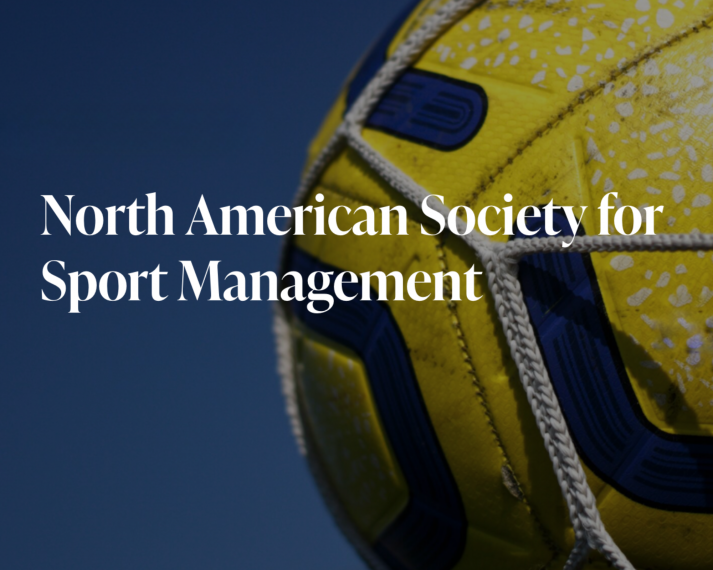Lang sport management professor recognized with prestigious NASSM research fellowship

Heather Kennedy grew up watching and playing sports. She also started her academic career studying information systems. So, when she came to a crossroads in her career trajectory and discovered it was possible to combine the two pathways, she jumped at the chance. That pivot paid off; today she’s not only educating the next generation of sport management students at the Gordon S. Lang School of Business and Economics, but was recently recognized with the prestigious research fellowship from the North American Society for Sport Management (NASSM).
The NASSM Research Fellow Award is a lifetime award recognizing researchers for achievement in sport-related scholarship, disseminated through NASSM. Kennedy achieved that status for her many conference presentations as well as contributions to top-tier publications in her field, including the Journal of Sport Management, Event Management, Sport Marketing Quarterly, and the International Journal of Sport Communication.
Kennedy’s work has broadly focused on the use and impact of technology in sports. That concentration began with her doctoral dissertation at Temple University, where the sport management program is also housed within the business school. For her PhD, Kennedy looked at social media as well as mobile advertising, and has since branched out to look at many other different areas where technology intersects with sports, including artificial intelligence (AI) and sport betting, as well as the effect of technology on many different stakeholders, from sport organizations to athletes to fans.
In examining new technology, Kennedy tries to look beyond the hype. “I like to take a critical approach to how we examine technology and its use. I find often we're very optimistic and excited by technology. I try to acknowledge both sides: that these tools can be great and move things forward, but also can have problems and difficulties and challenges for different stakeholders,” she says.
Many of Kennedy’s current research projects focus on sport analytics, now in use by professional leagues from the NBA to the NFL. While analytics is producing data-driven insights to help sport organizations make decisions, Kennedy says the reasons behind the analytic recommendations can be hidden with a black box. She’s determined to dig deeper to demonstrate the reasons why the data and analytic models will suggest one course of action over another. Kennedy also strives to demonstrate how analytic techniques can be used by sport organizations, aiming to make them more accessible to those in the industry.
She’s hopeful that having clearer models will make data and analytics more useful to less affluent organizations and sports who may not have the same resources to pour into a full analytics department that we see in major league professional sports. “If we could make models more accessible, it will also help allow different organizations with different funding structures to be able to embrace it,” she says. In addition to her research efforts, Kennedy has also started teaching a course at Lang in Advanced Sport Analytics to help prepare the next generation of sport leaders to use this increasingly central skill.
Joining Lang in 2022, Kennedy also teaches a course called The Impact of Business on the Sport Industry, which looks at the economic and financial side of sport, everything from unions to public funding, which she says is relevant today. “I'm definitely biased in my perspective with that business training, but to me, at the end of the day, sport is a business. Especially when we look at the professional level. We're seeing private equity firms really starting to get into it, because this is an investment space.”
With this continued expansion, Kennedy believes that business schools are well positioned to train future sport professionals, while also providing a broader skill set that will be useful regardless of industry. “By being in that business school, we're preparing our students for that perspective, but we're also giving them a greater diversity of skills, and so they're learning more about accounting and finance and marketing and economics and all of these different areas,” she says.
For Kennedy too, becoming established at Lang meant that she could find a place to do her best work, the kind that earns a prestigious fellowship like the recognition she received from NASSM. “It was really exciting for me to find a program like this, because sport management isn't always housed in a business school. Here we have a unique perspective in how we approach sport management, and the diversity of thought, where we can collaborate with the marketing, economic and finance departments, all these different perspectives that go into running a business. So it's been great to be here at Lang to leverage that.”